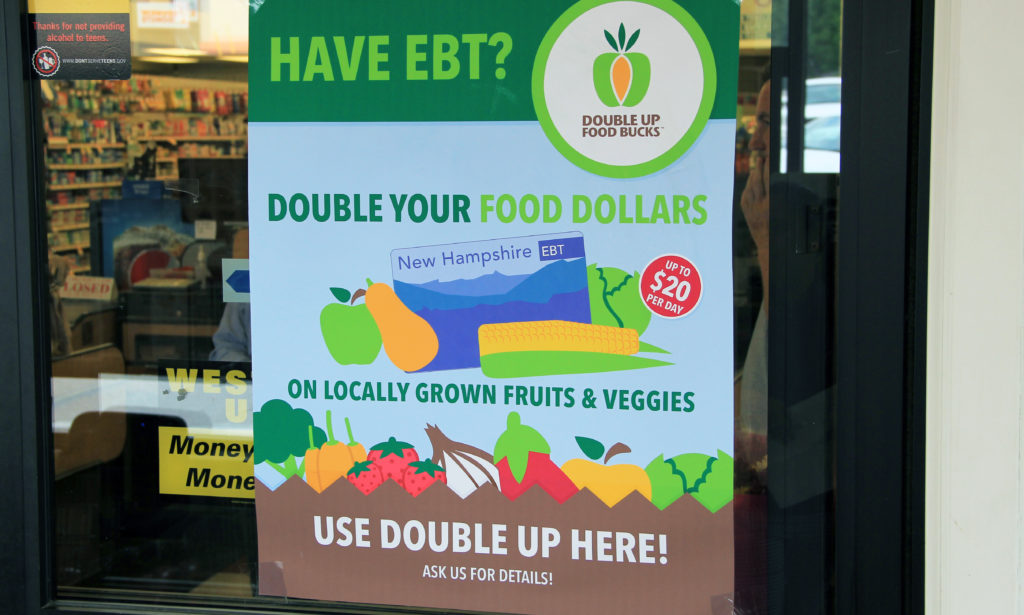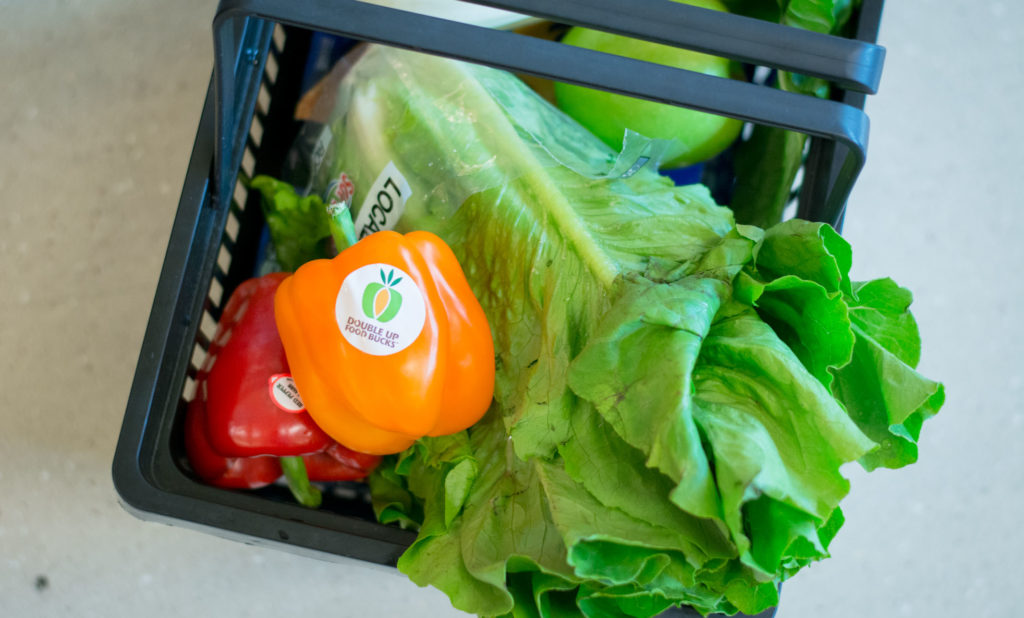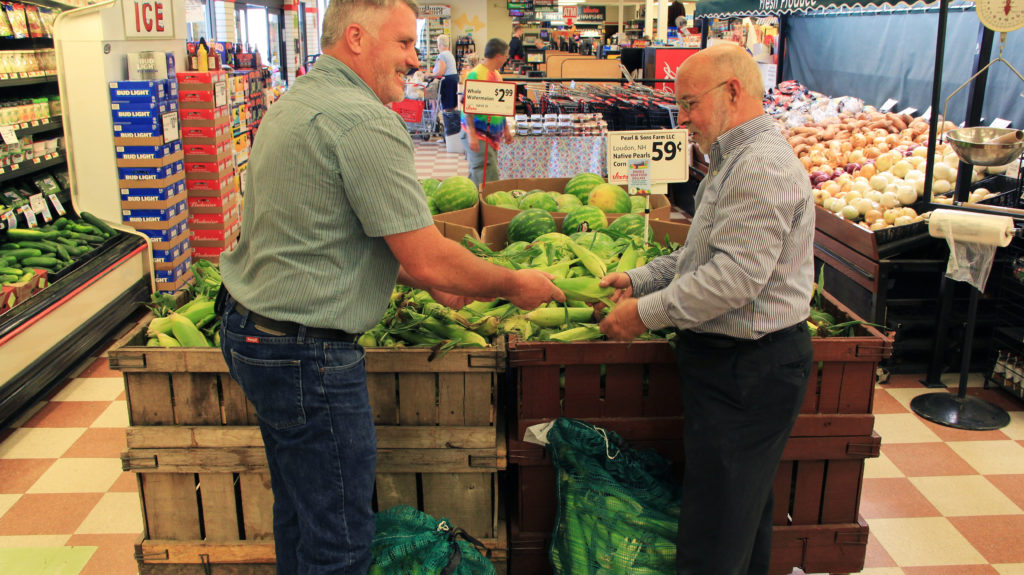If You Build It: Growing farmer grocer pipeline

As Double Up Food Bucks has grown from farmers markets to grocery stores, it has retained its commitment to local growers.
But what happens when the local farm to grocery supply chain doesn’t exist or needs support to scale and meet the growing demand?
As part of our healthy food incentive work, we’re taking a closer look at how we can help grow stronger farm to grocer ties as means to ensure Double Up continues to feed families while also putting more money in the pockets of local farmers.
Such work is taking root in a new Double Up program in New Hampshire in partnership with the Associated Grocers of New England (AGNE) and Red Tomato, a Massachusetts-based food hub working to connect the region’s farmers to grocery stores and institutions across the Northeast.
Double Up launched at four rural grocery stores in New Hampshire this August—a first for the state.

“We are thrilled to bring this proven program to some of our New Hampshire stores,” said Mike Violette, President and CEO of AGNE. “Food insecurity is a real challenge in New Hampshire, and being able to offer locally grown, healthy fruits and vegetables to low-income families is a big win. It’s good for our customers, our local farmers, and local businesses.”
In this pilot, Double Up Food Bucks can be earned on any regionally sourced produce, meaning fresh fruits and vegetables grown in New Hampshire as well as the broader New England region.
AGNE brought a proven track record of local sourcing to its network of 600 independently-owned member stores given growing market demand for locally grown food.
“We always say, the more local produce, the better. It’s what sets us apart from the big box stores,” says Bob Fitzpatrick, general manager of Vista Foods in Laconia. “Customers know that local produce is better. They don’t just want corn. In my store, they want Pearl’s corn, sourced from just a few miles from the store.”

But as Double Up grows in grocery, it will require a stronger network of farmers growing produce at a higher volume to meet store demand.
With support from Red Tomato, we’re working both sides of the equation simultaneously—helping participating Double Up grocers think through their local purchasing strategy, while identifying farms in the area that could be retail-ready with a little support and market connections.
These new relationships plus Double Up produce incentives could make an important difference: more healthy food for low-income families, more customers for area grocers, new market opportunities for local farmers, and a more resilient regional agricultural network in New Hampshire and beyond.
“Red Tomato was founded to create win/win opportunities for mid-sized farmers and wholesale customers,” said Laura Edwards Orr, Executive Director of Red Tomato. “Double Up Food Bucks enables us to add a third beneficiary, the shopper—making it easier for people to find and afford local produce where they already shop.”








